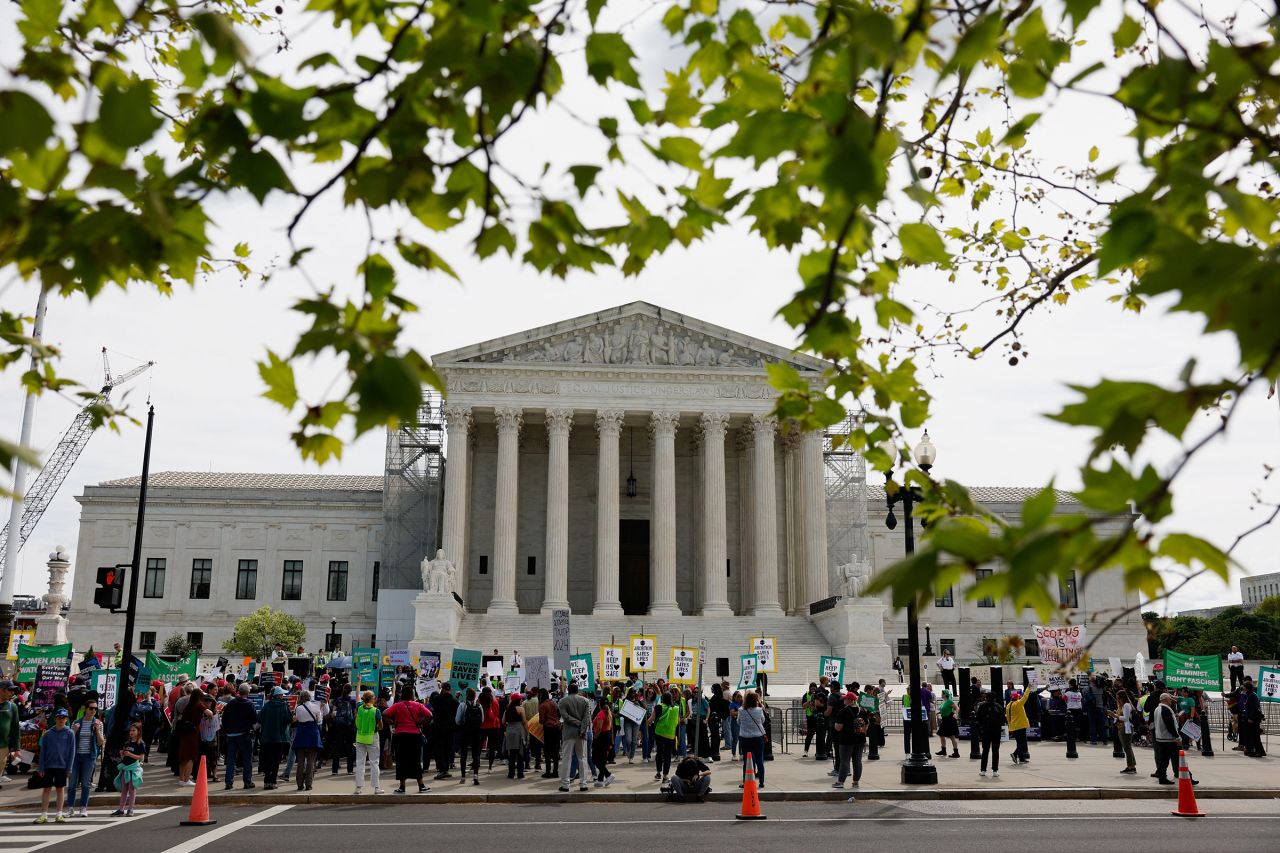United States: Returning to the fight over access to abortion, the U.S. Supreme Court justices were split on Wednesday in a case that pitted a federal rule that guarantees patients may obtain emergency treatment against Idaho’s severe abortion restriction, which is supported by Republicans.
The justices heard arguments in an appeal by Idaho officials of a lower court’s ruling that found the 1986 law at issue and the Emergency Medical Treatment and Labour Act (EMTALA), supersedes the state’s near-total ban in the relatively rare circumstances when the two conflict.
Under the presidency of Joe Biden’s administration, which sued Idaho over the abortion law, has already asked the justices to uphold that ruling.
Conservative Concerns
Meanwhile the court has a six to three conservative majorities and no consensus seemed to emerge among the conservative justices, who expressed their concerns including what protection that federal law extends to “unborn children” and whether Congress had clearly spelled out that EMTALA can mandate abortion in certain emergency cases.
Justice Brett Kavanaugh, a conservative, asked U.S. Solicitor General Elizabeth Prelogar, speaking for the administration, to address Idaho’s contention that the purpose of EMTALA was to stop emergency rooms from turning away uninsured patients, or “patient dumping,” rather than to address “abortion or other specific kinds of care.”
Congress established a “baseline national standard of care” through EMTALA, according to Prelogar, to guarantee that urgent situations are taken care of.
Prelogar added that Idaho cannot criminalize the essential care that EMTALA requires.
Judicial Response:
According to the information given by John Kruzel and Andrew Chung in Reuters which says that this case has led over the Supreme Court to revisit the fraught legal landscape it created with its June 2022 decision overturning the 1973 Roe v. Wade ruling that had legalized abortion nationwide.
Idaho is one of the seven states to put in the place the past two years and abortion ban with no exception to protect the health of the pregnant patients, Prelogar said.
This abortion “trigger” law which was adopted in 2020, automatically took the vengeance of Roe as the state law bans nearly all abortions unless they are needed to prevent a mother’s death, which also threatens the doctors who violate it with two to five years in prison and loss of their medical license too.
The liberal Justices pressed Joshua Turner, the lawyer for Idaho, to elaborate why this state permits the emergency abortions to prevent woman’s death but not to protect her health.
Ethical and Medical Complexities
“These abortion things can lead to many issues in women such as she’s going to lose her reproductive organs, she’s going to lose the ability to have children in the near future, unless an abortion takes place” liberal justice Elena Kagan said.
Turner called these “difficult” situations that raise “tough medical questions that implicate deeply theological and moral questions.
Biden Administration’s Stand
The conservative justices expressed worries about the legal challenge brought by the Biden administration, but it was unclear whether legal theory would ultimately win a majority in the decision.
Legal Arguments Unraveled:

Prelogar was informed by conservative Justice Samuel Alito that EMTALA mandates providing stabilization treatment for a woman’s “unborn child.”
“Performing an abortion is antithetical to that duty,” said Alito.
When a woman’s health is in jeopardy, Prelogar argued that the EMTALA clause does not replace her “as an individual with an emergency medical condition”. Prelogar continued, “It’s inevitable that the pregnancy is going to be lost before viability, so in many pregnancy emergencies, there is no way to stabilize the unborn child.” But notwithstanding the absurdity of the situation, Idaho would refuse to treat ladies in that situation.”
When Chief Justice John Roberts, a conservative, questioned Prelogar, he responded that the administration’s position would not force doctors who oppose abortion to perform the operation or force hospitals with religious affiliations to have emergency rooms.
“Our position is that EMTALA does not override either set of conscience protections,” Prelogar stated.
In 2022, U.S. District Judge B. Lynn Winmill, located in Boise, delayed the implementation of Idaho’s statute in circumstances where the woman’s health was in “serious jeopardy” or there was a possibility of “serious impairment to bodily functions.”









